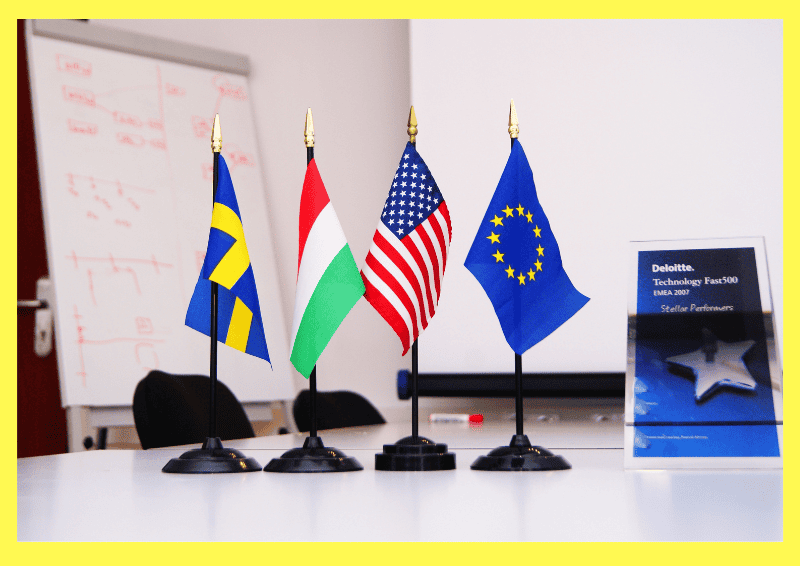
31 Jan International SEO: What it is and how to optimize it to rank your website in other countries
Index of contents
- 1 What is international SEO?
- 2 Key strategies for international SEO
- 2.1 Choosing the right domain strategy
- 2.2 Keyword research for each country
- 2.3 Content translation and localization
- 2.4 Adapting website architecture
- 2.5 Building high-quality links in international markets
- 2.6 Considering page speed and user experience
- 2.7 Why is international SEO important?
- 2.8
- 2.9 Ready to enter the international market?
- 2.10 Related Posts
Creating an international SEO strategy is not just about translating your content; it’s about adapting your website to be visible and relevant in different countries and languages. At Algaba Studio, we understand that each market has its own particularities, which is why we design personalized SEO strategies to help you effectively rank your website in international search engines.
What is international SEO?
International SEO refers to the strategies and tactics used to optimize a website to improve its visibility in search engines across different countries or regions. Unlike local SEO, which focuses on attracting an audience in a specific geographic location, international SEO targets a global audience and aims to adapt the content and structure of a website to the requirements of each market.

Key strategies for international SEO
Choosing the right domain strategy
One of the first decisions you need to make when implementing international SEO is choosing your domain structure. There are several options, each with its own advantages and disadvantages:
- Country-code top-level domains (ccTLDs): Using a country-specific domain, such as .es for Spain or .fr for France, signals to search engines that your site is targeting an audience in that country. This can help improve your ranking in local search results.
- Country subdirectories (subfolders): Using subdirectories within a main domain, such as example.com/es/ or example.com/fr/, is a simpler and more cost-effective option. Make sure to adapt your URLs to the needs of the local audience.
- Subdomains: Subdomains, like es.example.com, can be useful if your website has a broad international reach and is managed independently in each country.
Keyword research for each country
Keywords that work in one market may be completely different from those that work in another. In international SEO, conducting keyword research tailored to each country or language is crucial. Besides linguistic variations, cultural differences should also be considered when selecting keywords.
Tools like Google Keyword Planner or SEMrush can help you conduct more precise and market-specific research.
Content translation and localization
A simple word-for-word translation is not enough for international SEO. Content must be localized to resonate with the audience in each region. This involves not only translating words but also adapting the writing style, cultural references, and even the offers or products you promote if necessary.
Additionally, ensure your website is well-structured for search engines, with optimized titles, descriptions, and headers that incorporate local keywords.
Adapting website architecture
Your website’s structure plays a key role in international SEO. Make sure search engines can easily crawl the different language or regional versions of your site. Using hreflang tags is essential to inform Google and other search engines about the language and geographic targeting of your content. This prevents duplicate content issues and ensures the correct version of your page appears in international search results.
Building high-quality links in international markets
Link building remains a fundamental part of SEO, but international SEO requires focusing on acquiring links from relevant, high-quality websites within the markets you’re targeting. Strategies include:
- Listing your website in local directories
- Collaborating with local influencers
- Publishing articles on country-specific news sites
Considering page speed and user experience
Page speed is a critical factor for both SEO and user experience, regardless of the country. However, keep in mind that your website hosting should be optimized for the regions you’re targeting. If your users are spread across different parts of the world, using a hosting service with globally distributed servers or a content delivery network (CDN) can significantly improve load times.

Why is international SEO important?
International SEO allows you to:
- Expand your global reach: As your website ranks higher in international markets, you can reach a wider audience.
- Increase conversions: By adapting your website and content to the preferences of international users, conversion rates are more likely to improve in each market.
- Enhance your brand authority: Global positioning helps your brand be perceived as a leader, even in distant markets.
Ready to enter the international market?
At Algaba Studio, a digital marketing agency, we understand how crucial it is to reach new global markets. International SEO is not just a tool, it’s a comprehensive strategy that can transform your business’s visibility in key countries and regions. From choosing the right domain structure to adapting your content to resonate with each local audience, every detail matters. Contact us today and…
Say, Hello, Algaba Studio!







Sorry, the comment form is closed at this time.